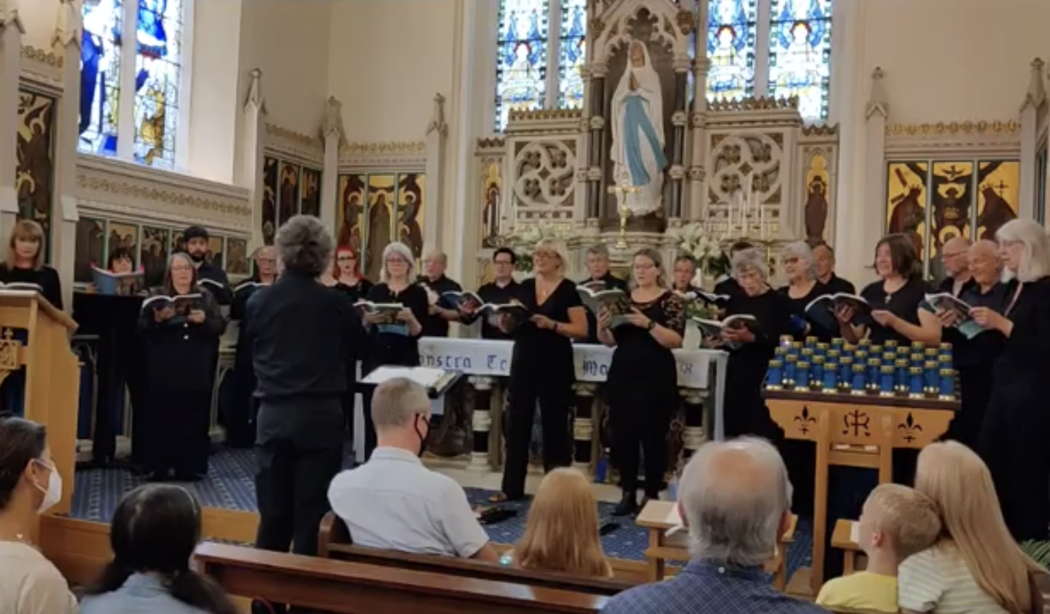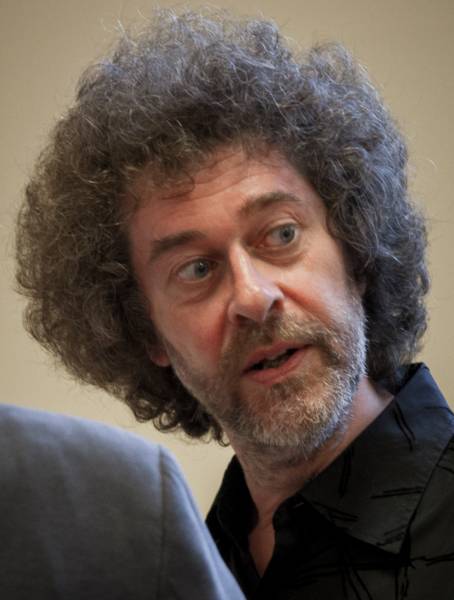- Padre Martini
- Phoenix
- Johansen
- harmonia mundi usa
- Münchner Philharmoniker
- Attila
- Dinuk Wijeratne: A letter from the After-life
- Sonja Krefting
 CENTRAL ENGLAND: Mike Wheeler's concert reviews from Nottingham and Derbyshire feature high profile artists on the UK circuit - often quite early on their tours.
CENTRAL ENGLAND: Mike Wheeler's concert reviews from Nottingham and Derbyshire feature high profile artists on the UK circuit - often quite early on their tours.
 UPDATES: There's a new feature every day at Classical Music Daily. Read about the various ways we can keep in touch with you about what's happening here.
UPDATES: There's a new feature every day at Classical Music Daily. Read about the various ways we can keep in touch with you about what's happening here.
Particularly Striking
MIKE WHEELER listens to the Richard Roddis Singers, performing for the first time in over two years
The Richard Roddis Singers are a hand-picked team that normally meets for a week once a year for rehearsals and a series of concerts, usually around Easter. Last year's event was cancelled, of course, so this has been their first chance to get together for nearly two and a half years, and it was clearly an emotional occasion.
The programme's agreeable mixture of sacred and secular got off to a spectacular start with Jonathan Dove's setting for chorus and piano of Tennyson's 'Ring Out, Wild Bells', the last of seven movements making up Dove's choral cycle The Passing of the Year. It begins in Eric Whitacre mode with hazy, layered harmonies, but soon goes its own way, including pianistic bell effects that don't resort to obvious clichés. The singers pitched into Dove's inventive score with gusto, and a huge dynamic range for a choir with just twenty-five members. Sometimes this was a bit too much for the intimate space of St Mary's Lady-Chapel, but no matter. The piece is a real find, and I look forward to exploring the other movements.

The Richard Roddis Singers on 25 July 2021
Felix Mendelssohn's Verleih' uns Frieden has been emerging as a popular favourite with British choirs in recent years. The singers captured its tranquillity, which shaded off neatly into Bruckner's motet Christus Factus Est. Its tonal shifts were expertly navigated, and the extended winding-down was paced just right. Jacob Handl's Pater Noster seemed to have pre-echoes of Schütz in its more syllabic writing. The antiphony between upper and lower voices was finely balanced, and there was a real sense of a firm arrival-point.
In the first of Delius's two wordless part-songs To Be Sung of a Summer Night on the Water, the sliding chromatic lines were kept well in focus. Richard Roddis then turned to the pianist, Clive Pollard, his regular song recital partner, to introduce him as the composer of a setting of W B Yeats' well-loved poem 'He wishes for the cloths of heaven'. It began life as a solo song; this was the premiere of a choral version, unfolding over gently rippling piano figures. Placing the basses at the top of their range at the line 'Tread softly, for you tread on my dreams' was a particularly striking effect.
Brahms's Geistliches Lied is based on intricate canonic writing. Here the lines were clear to follow, and again the choir summoned up a wide range of dynamics. Antonio Lotti's eight-voice Crucifixus is another choral favourite. Roddis and the singers expertly built up the texture of overlapping entries at the start, and the several suspensions made their piercing effect. Schubert's setting of Psalm 23 for upper voices, sung in English, glowed calmly.

Richard Roddis
The final secular group began with a nod to Josquin des Prez in his five hundredth anniversary year, in a measured, poignant account of the French chanson usually attributed to him, Mille Regretz. Robert Pearsall's Lay a Garland is a particularly successful nineteenth-century recreation of the sixteenth-century English madrigal, whose rich textures were clearly relished by the singers, as was the vitality of Finzi's 'My Spirit sang all day', from his set of seven part-songs to words by Robert Bridges. There was more exuberance to come, in a repeat performance of the Jonathan Dove, a neat touch to end on.
Copyright © 4 August 2021
Mike Wheeler,
Derby UK

MORE CLASSICAL MUSIC IN DERBY ARTICLES


